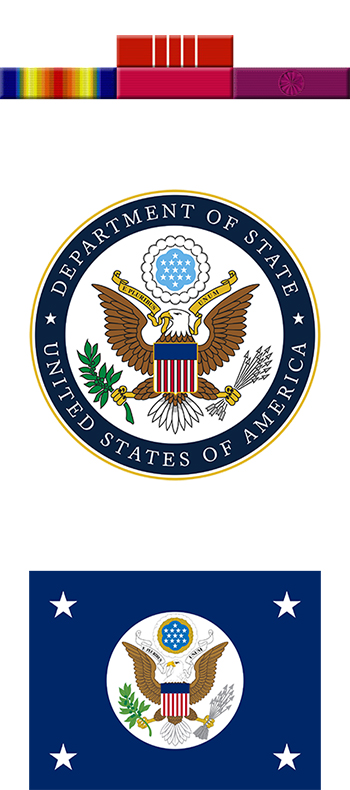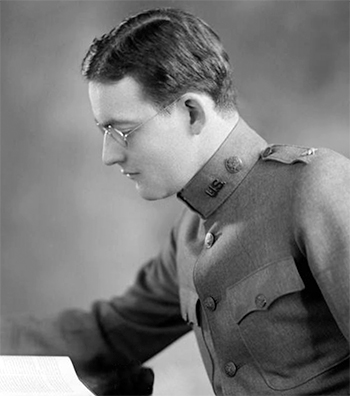
|
John Foster Dulles |
 |
|||
| Rank, Service | ||||
Major, U.S. Army |
||||
| Veteran of: | ||||
|
||||
| Tribute: | ||||
John Dulles was born on February 25, 1888, in Washington, D.C. He entered Princeton University in Princeton, New Jersey, in 1904, and graduated as Class Valedictorian with a bachelor's degree in 1908. After studying international law and philosophy Sorbonne University in Paris, France, from 1908 to 1909, and law at George Washington University Law School in Washington, D.C., from 1909 to 1911, he joined the New York City law firm of Sullivan & Cromwell, specializing in international law. He served as a special counsel with the Department of State from April to August 1917, and was then commissioned a Captain in the Aviation Section of the U.S. Army Signal Corps on September 5, 1917. Capt Dulles went on active duty in the Military Intelligence Section, War College Division of the General Staff, in Washington, D.C., on September 29, 1917, and transferred to the War Trade Board as a Liaison Officer between the War Department and the War Trade Board in Washington, D.C., in March 1918. He was promoted to Major on November 7, 1918, and was honorably discharged from the U.S. Army on December 19, 1918. Dulles was then appointed as legal counsel to the United States delegation to the Versailles Peace Conference, followed by service as a member of the War Reparations Committee in Europe at the end of World War I. He then returned to Sullivan & Cromwell law firm working in international law throughout the 1920s and 1930s. During World War II he engaged in Post-War Planning with the Federal Council of Churches Commission on a Just and Durable Peace; his work helping to later show the need for the United Nations. He worked as New York Governor Thomas E. Dewey's chief foreign policy adviser during this 1944 and 1948 Presidential campaigns, and he helped draft the preamble to the United Nations Charter, serving as a United States delegate to the United Nations General Assembly in 1946, 1947, and 1950. Dulles was appointed a U.S. Senator from New York to complete the term of Robert F. Wagner, who had resigned, from July 7 to November 8, 1949. He then served as a consultant to the U.S. State Department, there he became the key architect of the Treaty of San Francisco which ended the U.S. Occupation of Japan in 1952, and the Security Treaty between the United States and Japan, which also went into effect in 1952. He also helped initiate the ANZUS Treaty with Australia and New Zealand in 1952. Dulles was appointed the 52nd United States Secretary of State and served from January 26, 1953, until his resignation due to poor health on April 22, 1959. He died on May 24, 1959, and was buried at Arlington National Cemetery. Dulles was posthumously awarded the Medal of Freedom and the Sylvanus Thayer Award in 1959. The new Washington Dulles International Airport in Dulles, Virginia, was named in his honor in 1962. His grandfather, John W. Foster, served as the 32nd U.S. Secretary of State from 1892 to 1893, and his uncle, Robert Lansing, served as the 42nd U.S. Secretary of State from 1915 to 1920. His brother, Allen W. Dulles, was the 5th Director of the Central Intelligence Agency from 1953 to 1961. |
||||
|
||||

